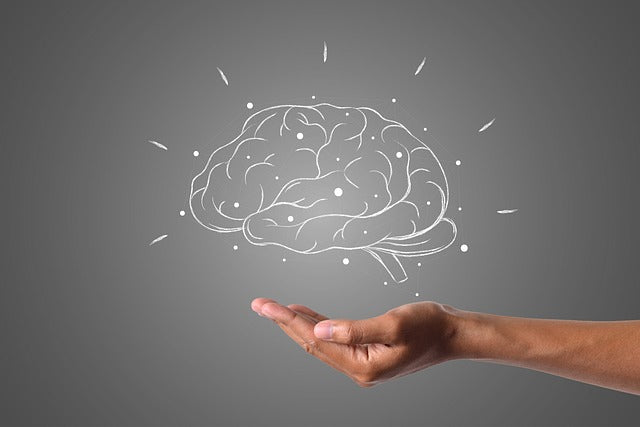Worn Out, Weary, Sapped & Spent
Remember the immense and boundless energy of childhood? That full-throttle-jump-on-the-bed-run-in-circles-and-yell-at-the-top-of-your-lungs Vesuvius of energy? Delight and curiosity about everything, and then the sweet plunge into deep, restorative sleep at nap-time or nighttime…waking up with nary an ache or pain…
If that kind of energy feels long gone—if you drag through the day depending on red bull, coke, and various energy products—you may need a different kind of reboot. Here are four essential and effective tips for a natural and sustained energy boost.
Make Sure to Get Restorative Sleep
Do you have an unpaid sleep debt? Sleep is a foundation of health and a source of abundant energy. Chronic lack of sleep raises risk of many health problems, including heart disease, diabetes, obesity, depression and anxiety.[1]
Yet sleep is the first thing people cut down on when work and family pressures mount. Nearly a third of Americans are sleep deprived. That has serious consequences beyond being tired. Many inflammatory molecules and hormones are impacted by sleep.[2],[3]
Meditation, yoga and guided relaxation have been proven to improve sleep, and many youtube videos, tapes and apps are available.[4] But that may not be enough when you're wired and tired. One effective sleep re-set comes in the form of supplemental melatonin. Melatonin is a natural hormone that regulates the body's circadian rhythm—it is suppressed by bright light or daylight, and surges as night falls. Melatonin levels begin increasing in the late evening, reaching their peak between 2:00 and 4:00 a.m.[5] When the body's sleep cycle becomes dysregulated, supplemental melatonin can help restore normal, healthy sleep patterns.[6] Night time melatonin levels are reduced in primary insomnia.[7] Normal melatonin secretion also declines with age.
Melatonin offers additional benefits beyond sleep, because it can function as a potent antioxidant. It can, for instance, reduce oxidative stress in high-intensity athletes during training.[8]
When standard over-the-counter supplements containing melatonin are taken, only 15% of the melatonin is absorbed. A liquid liposomal formulation may offer more rapid distribution and better uptake to the blood stream. In addition, for those highly sensitive to melatonin, a liquid format can be easily titrated to a very low dose.
A good night's deep sleep literally helps our brain cells replenish the energy stores they spent during the day. Sleep recharges the brain and the body.
Exercise Regularly
There's a funny paradox to energy—you have to spend it to get it. One way of combating exhaustion is regular exercise. Consistent aerobic exercise—even as little as 20 minutes three times a week—can boost energy levels in fatigued individuals. In one study, low intensity or moderate intensity exercise increased energy levels 20% after six weeks, and dropped feelings of fatigue by as much as 65%, and the researchers suggest that exercise acts directly on the central nervous system to increase energy and reduce fatigue.[9]
Even moderate exercise, however, can deplete vitamins and minerals—often through sweating. A broad-spectrum vitamin and mineral supplement can be the best multivitamin for energy. It will include a panoply of necessary nutrients to offer a natural energy boost. For instance, B complex vitamins are important for energy metabolism in the body, and athletes with low levels perform more poorly during high-intensity exercise. Adequate levels of calcium and vitamin D are necessary for skeletal strength and even for skeletal muscle function, which is important for high-impact exercise.
Calm the Mind and Soothe Anxiety
Chronic anxiety and worry are consequences of the so-called "monkey mind", as it's called in Buddhist thought—a mind seemingly filled with innumerable drunken monkeys jumping, chattering, screeching endlessly. It's hard not to worry in today's high-octane, always-connected, ever-demanding world.
Both anxiety and worry are known to deplete energy levels and lead to a kind of wired-and-tired exhaustion. Excessive worry will shift you into a constant fight-or-flight state, triggering your sympathetic nervous system to release stress hormones such as cortisol. Chronically elevated cortisol levels raise blood sugar and triglycerides to meet the demands of increased stress. Chronic fatigue can be one outcome. To calm the overactive monkey mind, well-known supplements such as Gamma-aminobutyric acid (GABA) and L-theanine can offer natural assistance in achieving relaxation. Some individuals suffering from chronic anxiety and insomnia do not naturally make sufficient levels of GABA. In turn, L-theanine, an amino acid found in green tea. L-theanine competes in the brain with the most important excitatory neurotransmitter, glutamate. By inhibiting the action of glutamate, it produces a calm, relaxed state.[10]
Turn to Adaptogenic Herbs
Adaptogenic herbs are healing plants that bring the body back into balance, especially its ability to handle stress. These healing botanicals help your entire body cope with fatigue, increasing non-specific resistance to stress. In the words of herbalist Dan Moriarty, founder of Sun Horse Energy, "They balance physiology at a cellular level for stress accommodation, and help the body achieve homeostasis. Think of a violin. If tuned too tightly the stress will break the strings. If tuned too loosely, the strings will be floppy. Either way, you won't have music. Adaptogens tune your body to the right pitch and tension." Adaptogens with a long record of safety, that have been used for hundreds or thousands of years, include Schisandra berry,Ginseng, Chinese licorice root, Lycium (the goji berry), and many others.




